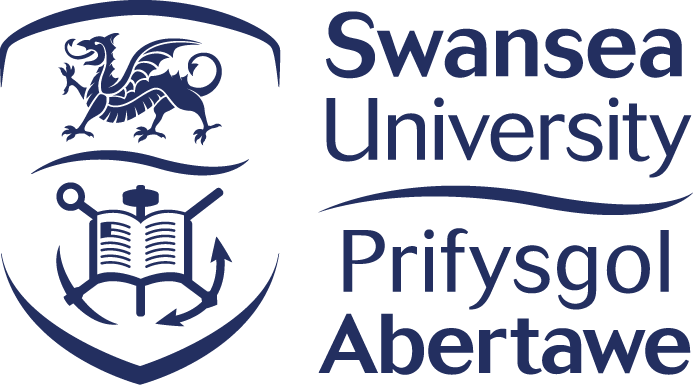Development Studies: Empowering Global Change-Makers
Are you passionate about addressing poverty, inequality, and sustainable development? Development Studies is an interdisciplinary field that equips students with the knowledge and skills to tackle real-world challenges in global development. For Indian students eyeing opportunities abroad, this course opens doors to impactful careers in international organizations, NGOs, and government agencies. Studying Development Studies overseas provides exposure to diverse perspectives, cutting-edge research, and practical fieldwork that can transform your understanding of societal progress.
This dynamic program combines economics, sociology, politics, and environmental science to analyze how societies evolve and the policies that drive positive change. Whether you're interested in sustainable agriculture, gender equality, or urban planning, Development Studies offers a pathway to contribute meaningfully to both local and global issues, especially relevant for India's own development journey.
Why Choose Development Studies Abroad?
India's rapid growth highlights the need for experts in development, but studying abroad amplifies your expertise. International programs expose you to global case studies—from Africa's poverty alleviation to Europe's green policies—giving you a broader lens than domestic curricula. As an Indian student, you'll gain cultural adaptability, networking with peers from around the world, and credentials valued by employers like the United Nations or World Bank.
- Global Perspective: Learn from experts who've worked on projects in Asia, Africa, and Latin America.
- Practical Experience: Many programs include internships, fieldwork, and community projects.
- Career Boost: An international degree enhances employability in India's booming NGO sector and multinational firms.
- Scholarship Opportunities: Targeted funding for students from developing nations like India.
Course Structure and Curriculum
Development Studies programs typically span 1-2 years for master's levels, with bachelor's options available. The curriculum is flexible, allowing specialization in areas like economic development, human rights, or environmental sustainability. Expect a mix of theoretical lectures, seminars, and hands-on research.
Core Modules
| Module | Description | Key Skills Gained |
|---|---|---|
| Introduction to Development Theories | Explore classical and modern theories, from modernization to dependency theory, with case studies from India and beyond. | Critical analysis, theoretical application |
| Economic Development and Policy | Study GDP growth, trade policies, and poverty reduction strategies, including India's Five-Year Plans. | Econometric tools, policy evaluation |
| Social Development and Inequality | Focus on gender, caste, and education disparities, drawing parallels to India's social challenges. | Qualitative research, advocacy skills |
| Environmental Sustainability | Address climate change, resource management, and sustainable development goals (SDGs), relevant to India's environmental policies. | GIS mapping, project management |
| Research Methods and Ethics | Learn quantitative and qualitative methods for fieldwork, emphasizing ethical considerations in vulnerable communities. | Data analysis, ethical decision-making |
Electives might include Global Health and Development, Migration and Diaspora, or Development in South Asia, allowing you to tailor the course to your interests. Most programs culminate in a dissertation or capstone project, where you could research topics like rural electrification in India or urban slum redevelopment.
Top Destinations for Indian Students
Choosing the right country enhances your experience. The UK, USA, Australia, and Canada are popular for their strong development programs and welcoming policies for international students.
- United Kingdom: Home to renowned universities like the University of Sussex and SOAS University of London. Programs emphasize policy and activism. Post-study work visa allows 2 years to gain experience.
- United States: Institutions like Harvard's Kennedy School or Georgetown University offer rigorous, research-focused degrees. GRE requirements apply, but scholarships abound for Indian applicants.
- Australia: Universities such as the University of Melbourne and ANU excel in sustainable development. Affordable living and a 2-4 year post-study work visa make it attractive.
- Canada: McGill University and University of Toronto provide multicultural environments with focuses on indigenous development. Express Entry system favors skilled graduates.
- Netherlands: Affordable tuition at ISS Erasmus University, specializing in development economics. English-taught programs and EU exposure.
For Indian students, the UK and Australia stand out due to shorter program durations (1 year for master's) and cultural similarities in Commonwealth nations.
Eligibility and Application Process
Admission requirements vary, but most programs seek a bachelor's degree in social sciences, economics, or related fields with a minimum GPA of 3.0/4.0 (or equivalent, around 60-65% in Indian grading).
- Academic Prerequisites: Relevant undergraduate degree; some require work experience in NGOs.
- English Proficiency: IELTS (6.5+) or TOEFL (90+); waived for Indian students from English-medium institutions sometimes.
- Documents Needed: Transcripts, SOP (Statement of Purpose) highlighting your interest in development (e.g., volunteering in India), 2-3 LORs, CV.
- Application Timeline: Deadlines from September to January for fall intake; apply 6-12 months in advance.
- Visa Tips: For UK Tier 4, show funds for tuition + living (£1,265/month). US F-1 requires SEVIS fee payment.
Indian students should emphasize their unique perspective—perhaps experiences with India's rural development schemes—in their applications to stand out.
Scholarships and Financial Aid
Funding is crucial for studying abroad. Many scholarships prioritize students from developing countries like India.
| Scholarship | Provider/Country | Amount/Benefits | |
|---|---|---|---|
| Chevening Scholarships | UK Government | Full tuition, living stipend, travel | Indian citizens with 2+ years work experience |
| Fulbright-Nehru Master's Fellowships | US-India | Full funding + J-1 visa support | Strong academic record, leadership potential |
| Australia Awards | Australian Government | Tuition, health insurance, return airfare | Focus on development-related fields |
| Vanier Canada Graduate Scholarships | Canada | CAD 50,000/year for 3 years | Research excellence in social sciences |
| Commonwealth Scholarships | UK/Commonwealth | Full coverage for master's | Indian nationals from low-income backgrounds |
University-specific aids like LSE's Graduate Support Scheme or Oxford's Clarendon Fund also cover partial costs. Start applications early—deadlines often align with program intakes.
Career Opportunities and Prospects
A degree in Development Studies launches versatile careers. Graduates often work in international development, policy analysis, or consulting, with strong demand in India's growing sector.
Average Salaries (Post-Master's):
- India: INR 6-12 lakhs/year (NGOs like Oxfam, PRADAN)
- UK/USA: GBP 30,000-50,000 / USD 50,000-80,000 (UN, USAID)
- Australia/Canada: AUD 70,000-100,000 / CAD 60,000-90,000
Key Roles:
- Development Officer: Design and implement projects for NGOs.
- Policy Analyst: Advise governments on SDGs, like India's NITI Aayog.
- Program Manager: Oversee aid initiatives in conflict zones.
- Researcher/Consultant: Work with think tanks like Brookings or McKinsey's development practice.
- Social Entrepreneur: Launch ventures addressing local issues, supported by global networks.
With experience, alumni advance to leadership in organizations like UNDP or World Vision. For Indian students, this degree bridges domestic challenges (e.g., Swachh Bharat) with global expertise, making you a sought-after professional.
Student Life and Support for Indian Students
Studying abroad in Development Studies means immersive experiences. Expect group projects simulating UN negotiations or field trips to local communities. Indian student societies provide home-like support—think Diwali celebrations and cricket matches.
Challenges and Tips:
- Cultural Adjustment: Join orientation programs; connect via Indian diaspora groups.
- Cost of Living: Budget GBP 800-1,200/month in UK; share accommodations to save.
- Mental Health: Universities offer counseling; balance studies with yoga or Indian cooking clubs.
- Networking: Attend conferences like the Development Studies Association events.
Many programs partner with Indian organizations for exchange opportunities, easing your transition back home if desired.
Take the Next Step
Development Studies isn't just a course—it's a commitment to equity and progress. For Indian students, it's a chance to amplify your voice on the world stage while addressing homeland issues. Explore programs, apply for scholarships, and embark on a journey that shapes future leaders. Your passion for change starts here.






